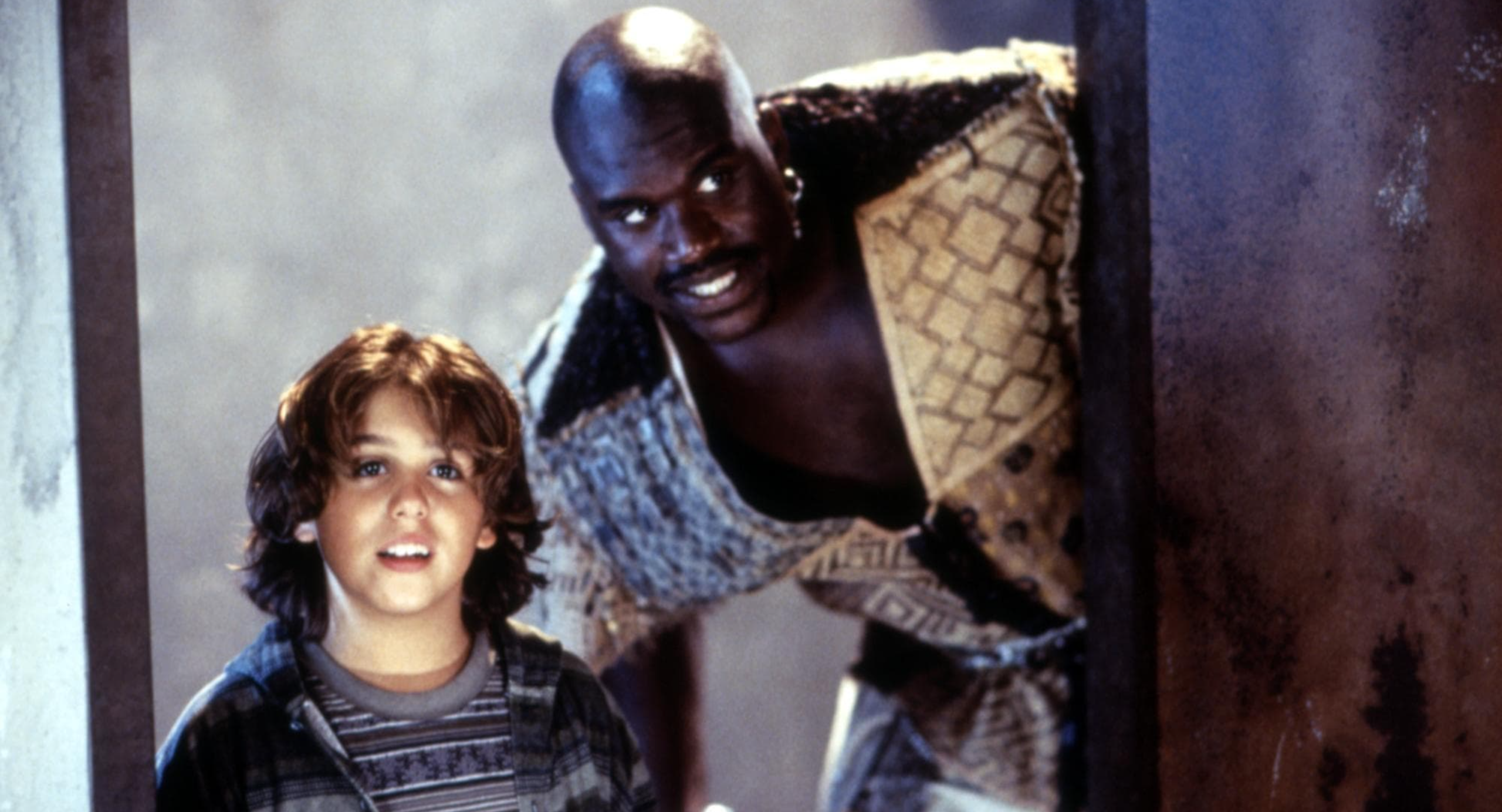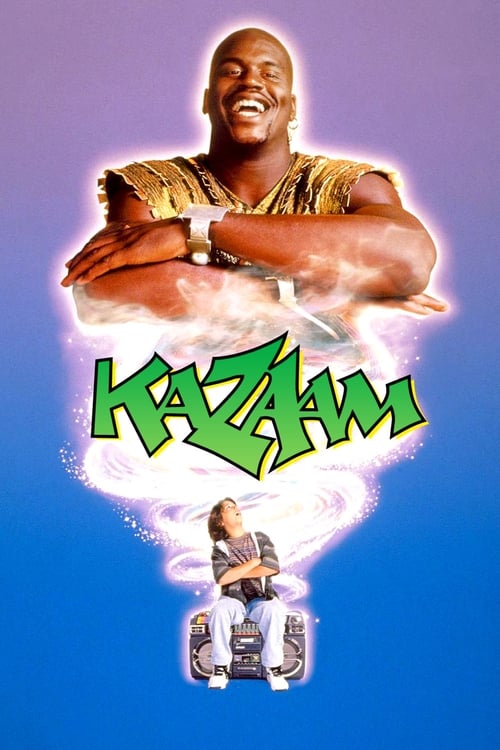Kazaam – Film Review
Published April 16, 2024

In the realm of 1990s cinema, few films have managed to combine a bizarre premise, misguided casting choices, and poorly executed special effects quite as memorably as the 1996 feature, Kazaam. With a storyline that awkwardly tries to fuse urban fantasy with a family-friendly narrative, this film stumbles its way into the curious niche of being so markedly poor in quality that it transcends conventional criticism to become a source of bewildering amusement. This review delves into the many aspects that contribute to Kazaam’s unfortunate standing as a cinematic misstep, albeit one that has, against all odds, found a peculiar charm in its capacity to entertain through sheer absurdity.
Directed by Paul Michael Glaser, Kazaam stars the unlikely leading man Shaquille O’Neal—then at the height of his basketball fame—as the titular genie who emerges from a magic boombox to grant three wishes to a young boy named Max, portrayed by Francis Capra. Right from its inception, the film suffers under the weight of its own implausibility, not least due to O’Neal’s stiff and often painfully awkward acting chops. O’Neal’s foray into acting illustrates the misguided notion that athletic prowess can seamlessly transition into screen presence, a decision that might have been more at home in a novelty short rather than a full-length feature.
The narrative attempts to navigate through themes of family, friendship, and personal growth, but these commendable ambitions are lost amidst a screenplay rife with clichés and dialogue that oscillates between trying too hard to sound hip and falling flat with dated references. The attempts at humor, presumably aimed at keeping both children and adults engaged, frequently miss the mark, resulting in scenes that feel more cringe-worthy than comedic. The screenplay, penned by Christian Ford and Roger Soffer, also lacks the necessary cohesion, leading to a disjointed plot that seems to lurch from one improbable scenario to the next without much rhyme or reason.
One cannot discuss Kazaam without addressing its special effects, which, even for the mid-90s, were noticeably subpar. Given the fantastical nature of a story centered around a genie, the film relies heavily on visual effects to bring its magic to life. Unfortunately, these effects have not only aged poorly but also appeared notably inferior even upon the film’s release. The CGI sequences that are intended to awe instead evoke a sense of unintentional comedy, as they clash jarringly with the live-action components, further detracting from any potential immersion.
Despite its myriad shortcomings, Kazaam unwittingly achieves a peculiar sort of success as an exemplar of so-bad-it’s-good cinema. The film’s failings become a source of mirth, offering an entirely unintended layer of enjoyment. Watching O’Neal’s cumbersome attempts at embodying a mystical being is an exercise in bemusement, and there’s an odd joy in witnessing how a film can miss its target with such gusto. For viewers with a penchant for the camp and a tolerance for cinematic folly, Kazaam delivers an experience that’s as bewildering as it is hilarious.
The setting and production design, aiming to create a gritty, urban atmosphere as the backdrop for this fantastical tale, end up feeling both underdeveloped and inconsistent. The film flirts with elements of the coming-of-age genre and tries to ground its more fantastical components in a setting that reflects real-world challenges and conflicts. However, these attempts are undermined by the film’s overall tone and the fantastical elements that feel shoehorned into the narrative, never fully integrating into a coherent whole.
Additionally, Kazaam’s musical interludes, which include rap sequences performed by O’Neal’s character, serve as bizarre highlights that underscore the film’s identity crisis. Meant to capitalize on the mid-90s rap culture and O’Neal’s own recording career, these moments come across as awkwardly self-indulgent, further blurring the line between earnest storytelling and unintentional parody.
In a film where every component, from storyline to acting to special effects, ranges from substandard to outright baffling, it might seem challenging to find a silver lining. Yet, it’s precisely these flaws that endow Kazaam with its peculiar charm. It’s a film that elicits laughter and disbelief in equal measure, offering an almost surreal viewing experience that defies logical analysis. In an era where so much entertainment is meticulously crafted to appeal to specific demographics and sensibilities, there’s something oddly refreshing about a film that fails so spectacularly on conventional terms yet succeeds in creating an unforgettable spectacle.
Kazaam stands as a monument to a particular brand of cinematic hubris—the belief that sheer star power and a fantastical premise are enough to override a lackluster script, dubious acting, and lackluster special effects.
